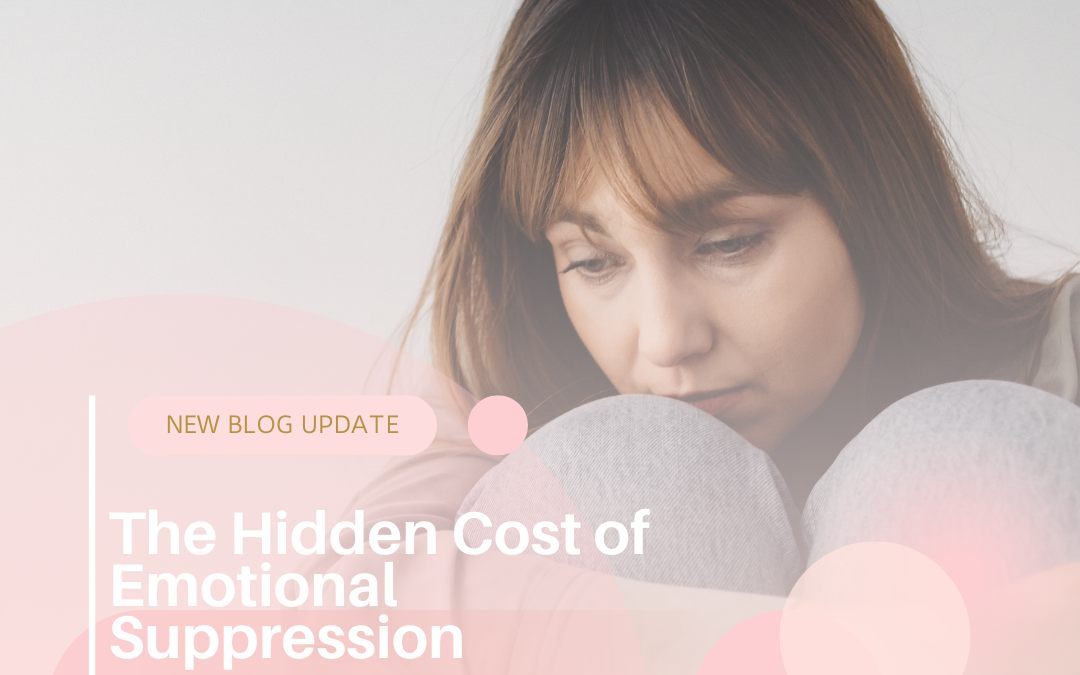Have you ever pushed down your feelings with a deep breath and a forced smile? Said “I’m fine” when you were anything but? You’re not alone. Many of us have learned to suppress our emotions—especially the uncomfortable ones—as a survival strategy. But over time, this emotional avoidance can come at a high cost.
In this blog, we’ll explore what emotional suppression is, why we do it, and how reconnecting with your emotional life can lead to healing and freedom.
What Is Emotional Suppression?
Emotional suppression is the act of consciously or unconsciously pushing away feelings—especially those that feel too overwhelming, painful, or socially unacceptable. Rather than expressing or processing an emotion, we “stuff it down” to avoid discomfort or perceived consequences.
Some common suppressed emotions include:
-
Anger (“I don’t want to seem aggressive.”)
-
Sadness (“Crying makes me weak.”)
-
Fear (“I have to stay strong for everyone else.”)
-
Grief (“I should be over this by now.”)
Suppressing emotions might feel like control, but it’s actually avoidance.
Why Do We Suppress Our Emotions?
1. Cultural and Familial Conditioning
Many of us grew up in homes where expressing emotions was discouraged or punished. We learned to keep a “stiff upper lip” or “man up.” Cultural norms also play a role, reinforcing the idea that some emotions are shameful or unacceptable.
2. Fear of Judgment or Rejection
Expressing vulnerability can feel risky. If you’ve ever been ridiculed or dismissed for sharing your feelings, it makes sense that you’d start hiding them.
3. Survival and Self-Protection
In chaotic, traumatic, or emotionally unsafe environments, suppressing feelings can be a protective mechanism. It helps you get through what you’re not yet ready to process.
4. Perfectionism or People-Pleasing
If your self-worth is tied to being “put together,” you might suppress emotions to maintain a façade of competence or harmony.
What Happens When You Suppress Emotions?
1. Mental Health Issues
Chronic suppression is linked to anxiety, depression, emotional numbness, and even panic attacks. When emotions are not processed, they don’t just disappear—they accumulate.
2. Physical Health Consequences
Studies have shown that emotional suppression can increase stress hormones, weaken the immune system, and contribute to issues like high blood pressure, headaches, and digestive problems.
3. Relationship Strain
When you suppress your emotions, communication suffers. You might become passive-aggressive, distant, or suddenly explode after long periods of “holding it in.”
4. Loss of Self-Connection
Over time, suppressing emotions disconnects you from your intuition, needs, and desires. You begin to feel numb, directionless, or like you’re just “going through the motions.”
How to Start Healing From Emotional Suppression
1. Name What You Feel
Start building your emotional vocabulary. Use tools like the Emotion Wheel or journal prompts to get specific. Instead of “I feel bad,” explore: Is it guilt? Shame? Loneliness? Anger?
2. Give Yourself Permission
Remind yourself: It’s okay to feel. Emotions are not dangerous—they are data. They don’t define you, but they inform you.
3. Practice Safe Expression
Find healthy outlets to release and express emotions:
-
Talk to a therapist or a trusted friend.
-
Cry if you need to.
-
Write freely in a journal.
-
Use movement (walking, dancing, exercising) to release built-up energy.
4. Reconnect With Your Body
Emotions often live in the body. Practices like mindfulness, yoga, or somatic therapy can help you identify and release physical tension tied to suppressed feelings.
5. Challenge Old Beliefs
Ask yourself: Where did I learn that emotions are dangerous or wrong? Gently begin to rewrite those narratives. Vulnerability is not weakness—it’s courage.
The Freedom of Feeling
Suppressing your emotions might help you survive, but it won’t help you thrive. True strength lies not in pretending everything is fine, but in showing up honestly—with yourself and others.
When you begin to feel what you’ve been avoiding, you don’t fall apart—you come home to yourself. You reclaim your voice, your clarity, your humanity. You begin to live a life that is not just managed—but truly felt.


Recent Comments